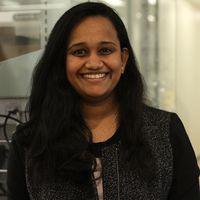Self-Restraint And Will Power Improves Weight-Loss: Scientific Evidence
“If you are willing to be a self-learner, you will develop yourself,” is a pearl of wisdom imparted on each one of us for a successful life. A new scientific study published in Cell Metabolism on October 18th by researchers at Montreal Neurological Institute and Hospital in Canada suggests that keeping oneself on a given task and learning to self-control has the power to achieve your desires.
Exerting self-control is hard and sometimes feels downright impossible. You can learn it, and there are proven techniques that aid in improving such skills. But it is one thing to have anecdotal evidence and another to have scientific proof that increased activity in brain areas involved in self-control and self-regulation increases the success rate for a given task. Prior research works point to the involvement of higher-order cognitive processing in self-regulation for weight management. However, questions remain on the involvement of these cortical networks in correlation with energy-balance hormonal changes during a successful/non-successful weight loss subjects.
Alain Dagher et al. studied the hormonal adaptations and cognitive control brain regions in overweight study patients and showed the later plays a more critical role in weight-loss that the former. “What we found is that in humans, the control of body weight is dependent largely on the areas of the brain involved in self-control and self-regulation,” says Dagher. “That area of the brain can take into account long-term information, such as the desire to be healthy, to control immediate desires.”
Twenty four overweight participants were studied before, one and three months post starting a non-ketogenic, calorie-restricted diet from the weight loss clinic. Neuroendocrine signatures during calorie restriction were mapped by measuring circulating energy-balance hormones and brain functional magnetic resonance imaging (fMRI) responses to food cues.
The overall calories were 1100-1400 kcal/day with 40% carbs, 30% fat, and 30% protein. Oral vitamin supplements and 30-45 brisk-walking regime were also recommended. Additionally, motivational counseling provided as a part of the weekly-visits. Psychological and physical activities were measured prior to the study to assess the patient's hunger levels, eating styles, depression levels, stress levels, reward/punishment sensitivity, and self-exercise. Blood was collected during the study at various time points before and after a set meal was used to measure the hormone levels.
Areas of the brain involved in food-related decisions are hypothalamus, hindbrain, striatum, ventromedial prefrontal cortex (vmPFC), anterior cingulate cortex, dorsolateral prefrontal cortex (diPFC), inferior frontal gyrus(IFG) and posterior parietal cortex. Particularly, PFC and IFG regions are of interest for dietary self-control neuroimaging studies, and it is also shown that vmPFC responds to changes seen in diFC and IFG downstream. A seven-minute fMRI imaging run was conducted when the subjects were presented with randomized 36 food images with equal high-calorie (e.g., brownies) and low-calorie (e.g., veggies) foods. Each image followed by a stimulus scale. Following image shows the study session details.
Leptin and Ghrelin hormones reflect the changes in energy balance during calorie restriction. Plasma leptin levels decrease on diet and fat mass loss. Conversely, ghrelin increases rapidly in calorie deficit situations. So, on a diet, if leptin falls and ghrelin levels rise then reward signaling will shift and prompt hunger! “Everybody who loses weight sees this change in leptin and ghrelin,” says Dagher. “It is just that some people, for reasons we do not know, can maintain their self-regulation in the face of that signal.”
For the 24 participants, calorie restriction resulted in weight loss, and an increase in fMRI food cue-related signal was seen at one in areas diPFC and IFG. The signal subsided in IFG and vmPFC from month 1 to month 3. The signal from ventral prefrontal cortex went down and particularly in those subjects with most weight loss than others. “In the fMRI, the self-control area increased its activity, and the value area decreased its activity,” says Dagher. “And the amount of change was predictive of successful weight loss.” Leptin and Ghrelin showed the predicted trends, and at the end of month three, a new baseline was set. The hormonal changes seen did not negatively affect the weight-loss.
“These results suggest that weight loss treatments that increase self-control, such as cognitive behavioral therapy, may be helpful, particularly when stress is involved in leading to overeating,” he said Dagher. Such findings open venues to cognitive treatment options for stress-overeating disorders.
With this scientific backing, summon that hidden self-control within you and execute the plans with increased vigor. You make your own life.









